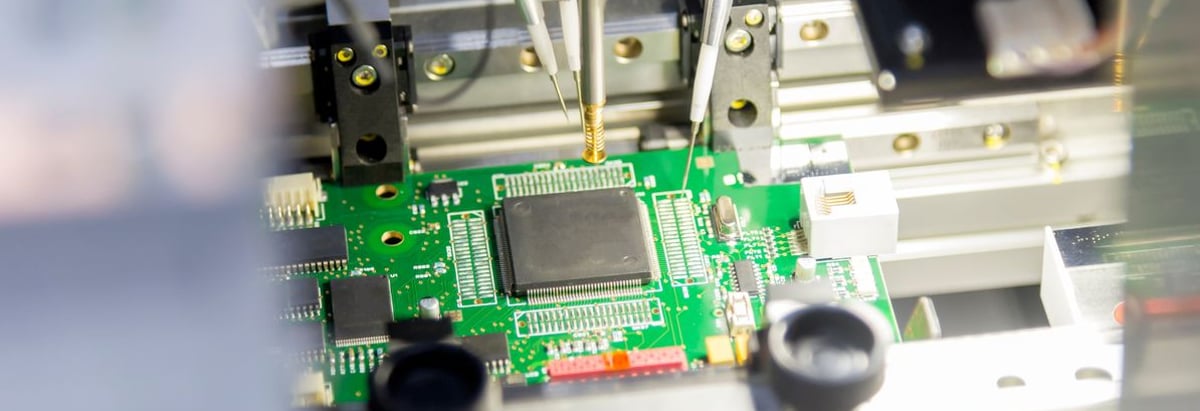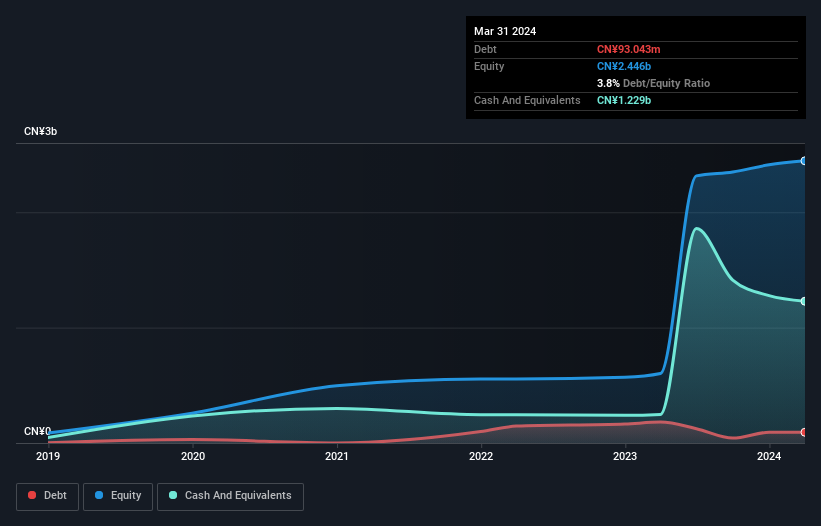
Legendary fund manager Li Lu (who Charlie Munger backed) once said, 'The biggest investment risk is not the volatility of prices, but whether you will suffer a permanent loss of capital.' So it seems the smart money knows that debt - which is usually involved in bankruptcies - is a very important factor, when you assess how risky a company is. We can see that Skyverse Technology Co., Ltd. (SHSE:688361) does use debt in its business. But the real question is whether this debt is making the company risky.
When Is Debt Dangerous?
Debt assists a business until the business has trouble paying it off, either with new capital or with free cash flow. Ultimately, if the company can't fulfill its legal obligations to repay debt, shareholders could walk away with nothing. However, a more usual (but still expensive) situation is where a company must dilute shareholders at a cheap share price simply to get debt under control. Of course, plenty of companies use debt to fund growth, without any negative consequences. When we examine debt levels, we first consider both cash and debt levels, together.
See our latest analysis for Skyverse Technology
How Much Debt Does Skyverse Technology Carry?
As you can see below, Skyverse Technology had CN¥93.0m of debt at March 2024, down from CN¥181.0m a year prior. But on the other hand it also has CN¥1.23b in cash, leading to a CN¥1.14b net cash position.

How Healthy Is Skyverse Technology's Balance Sheet?
According to the last reported balance sheet, Skyverse Technology had liabilities of CN¥990.3m due within 12 months, and liabilities of CN¥142.1m due beyond 12 months. Offsetting this, it had CN¥1.23b in cash and CN¥181.3m in receivables that were due within 12 months. So it can boast CN¥277.8m more liquid assets than total liabilities.
Having regard to Skyverse Technology's size, it seems that its liquid assets are well balanced with its total liabilities. So it's very unlikely that the CN¥16.4b company is short on cash, but still worth keeping an eye on the balance sheet. Simply put, the fact that Skyverse Technology has more cash than debt is arguably a good indication that it can manage its debt safely.
Although Skyverse Technology made a loss at the EBIT level, last year, it was also good to see that it generated CN¥24m in EBIT over the last twelve months. The balance sheet is clearly the area to focus on when you are analysing debt. But it is future earnings, more than anything, that will determine Skyverse Technology's ability to maintain a healthy balance sheet going forward. So if you're focused on the future you can check out this free report showing analyst profit forecasts.
Finally, while the tax-man may adore accounting profits, lenders only accept cold hard cash. While Skyverse Technology has net cash on its balance sheet, it's still worth taking a look at its ability to convert earnings before interest and tax (EBIT) to free cash flow, to help us understand how quickly it is building (or eroding) that cash balance. During the last year, Skyverse Technology burned a lot of cash. While investors are no doubt expecting a reversal of that situation in due course, it clearly does mean its use of debt is more risky.
Summing Up
While we empathize with investors who find debt concerning, you should keep in mind that Skyverse Technology has net cash of CN¥1.14b, as well as more liquid assets than liabilities. So we don't have any problem with Skyverse Technology's use of debt. When analysing debt levels, the balance sheet is the obvious place to start. But ultimately, every company can contain risks that exist outside of the balance sheet. To that end, you should be aware of the 1 warning sign we've spotted with Skyverse Technology .
If you're interested in investing in businesses that can grow profits without the burden of debt, then check out this free list of growing businesses that have net cash on the balance sheet.
New: Manage All Your Stock Portfolios in One Place
We've created the ultimate portfolio companion for stock investors, and it's free.
• Connect an unlimited number of Portfolios and see your total in one currency
• Be alerted to new Warning Signs or Risks via email or mobile
• Track the Fair Value of your stocks
Have feedback on this article? Concerned about the content? Get in touch with us directly. Alternatively, email editorial-team (at) simplywallst.com.
This article by Simply Wall St is general in nature. We provide commentary based on historical data and analyst forecasts only using an unbiased methodology and our articles are not intended to be financial advice. It does not constitute a recommendation to buy or sell any stock, and does not take account of your objectives, or your financial situation. We aim to bring you long-term focused analysis driven by fundamental data. Note that our analysis may not factor in the latest price-sensitive company announcements or qualitative material. Simply Wall St has no position in any stocks mentioned.
About SHSE:688361
Skyverse Technology
Manufactures packaging inspection equipment and optical measuring equipment.
High growth potential with mediocre balance sheet.
Similar Companies
Market Insights
Community Narratives



